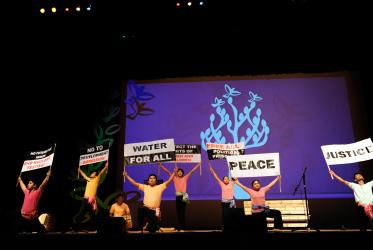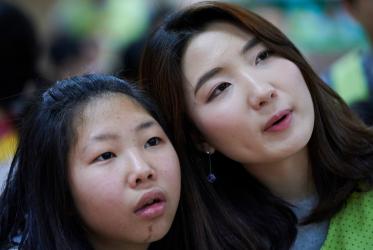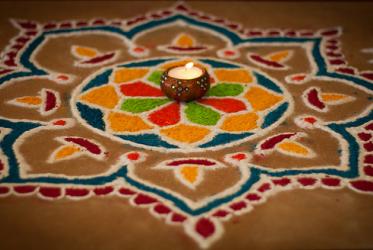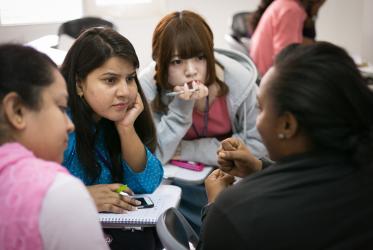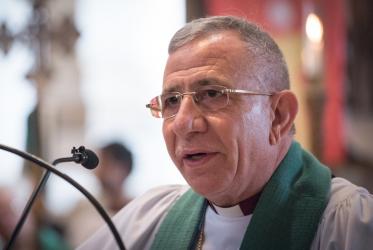Displaying 21 - 40 of 59
Thursdays in Black: sharing support, transforming lives
21 February 2019
Ecumenical School on Governance, Economics and Management (GEM) for an Economy of Life
19 - 30 August 2019
Jakarta, Indonesia
Paving the way for ecumenical studies, learning English in Bossey
24 September 2018
WCC extends greetings as Buddhists observe Vesakh
25 April 2018
Aiming for unity within diversity in Asia
20 April 2018
Determined to make a difference
18 April 2018
An advocate for family values, called by God
26 March 2018
WCC offers greetings to Hindus celebrating Diwali
19 October 2017
Bishop Younan awarded Niwano Peace Prize
22 February 2017
Plans for 2017 decided by WCC Executive Committee
01 December 2016
New videos help congregations hasten HIV response
20 October 2016
Religion: Way of war or path to peace?
30 June 2016


